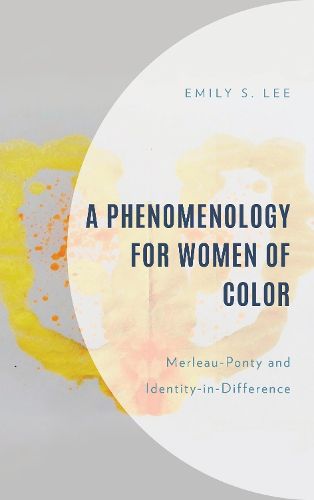Readings Newsletter
Become a Readings Member to make your shopping experience even easier.
Sign in or sign up for free!
You’re not far away from qualifying for FREE standard shipping within Australia
You’ve qualified for FREE standard shipping within Australia
The cart is loading…






A Phenomenology for Women of Color: Merleau-Ponty and Identity-in-Difference explores how phenomenology can help philosophy of race explain the persistence of race as a key indicator of social standing. Engaging with the work of women of color to think more deeply about our racial and gendered structural relations with one another, Emily S. Lee argues that phenomenology is helpful in two ways: (1) race, as a social construct, is phenomenal and (2) Merleau-Ponty's phenomenology centers on embodiment and therefore applies to both feminist and racial concerns. Lee defines the phenomenon of race as a structure that is open-ended, is developed creatively, and mediates one's situatedness in the world and relations with others. Drawing on ideas from Husserl, Heidegger, Sartre, and Merleau-Ponty, this book depicts the dynamic and creative expressions of race and racism to address the ambiguities within the experiences of race and sex and, ultimately, to conceptualize the identity group "women of color."
$9.00 standard shipping within Australia
FREE standard shipping within Australia for orders over $100.00
Express & International shipping calculated at checkout
Stock availability can be subject to change without notice. We recommend calling the shop or contacting our online team to check availability of low stock items. Please see our Shopping Online page for more details.
A Phenomenology for Women of Color: Merleau-Ponty and Identity-in-Difference explores how phenomenology can help philosophy of race explain the persistence of race as a key indicator of social standing. Engaging with the work of women of color to think more deeply about our racial and gendered structural relations with one another, Emily S. Lee argues that phenomenology is helpful in two ways: (1) race, as a social construct, is phenomenal and (2) Merleau-Ponty's phenomenology centers on embodiment and therefore applies to both feminist and racial concerns. Lee defines the phenomenon of race as a structure that is open-ended, is developed creatively, and mediates one's situatedness in the world and relations with others. Drawing on ideas from Husserl, Heidegger, Sartre, and Merleau-Ponty, this book depicts the dynamic and creative expressions of race and racism to address the ambiguities within the experiences of race and sex and, ultimately, to conceptualize the identity group "women of color."